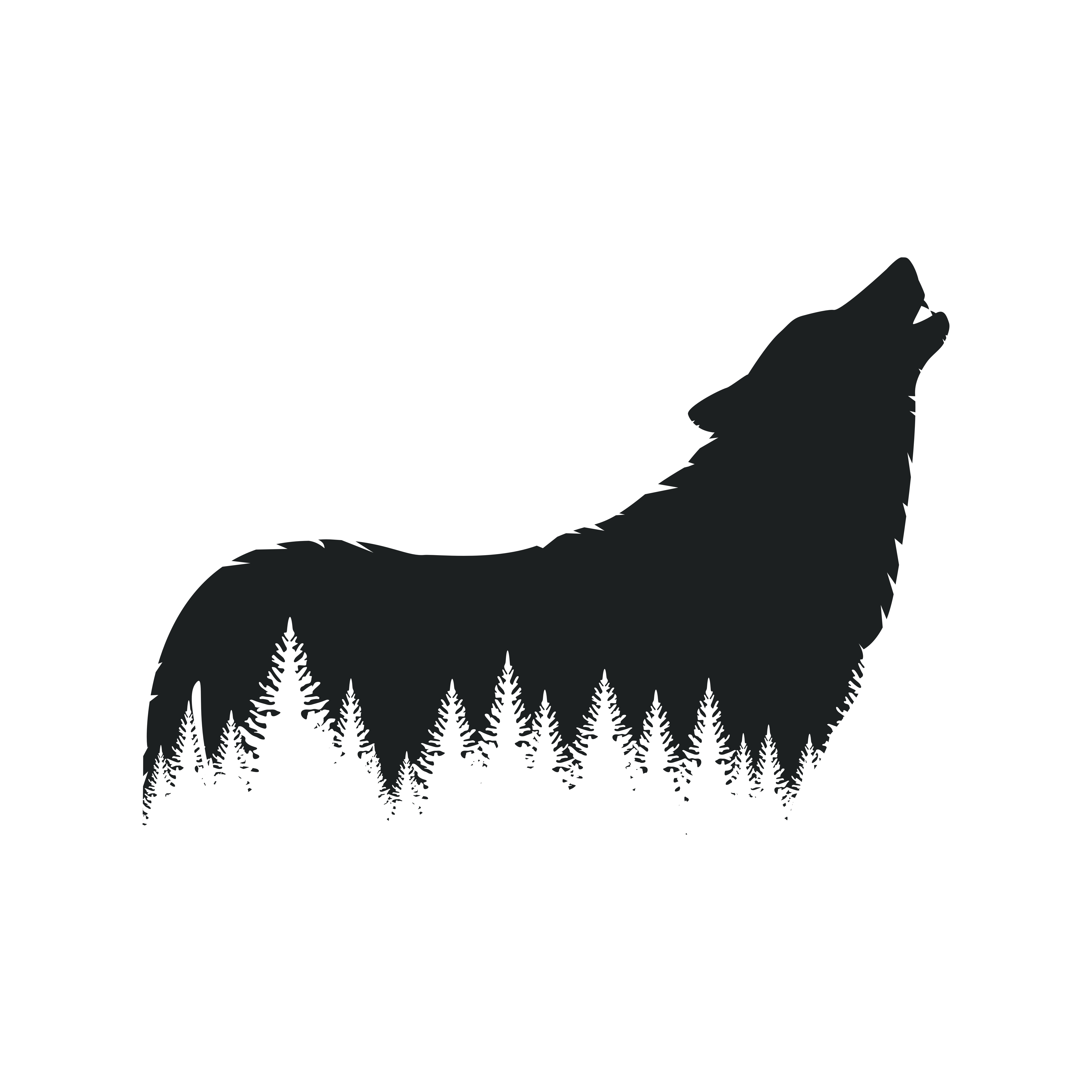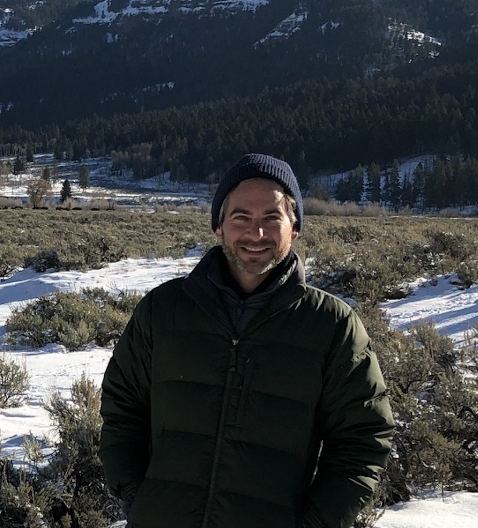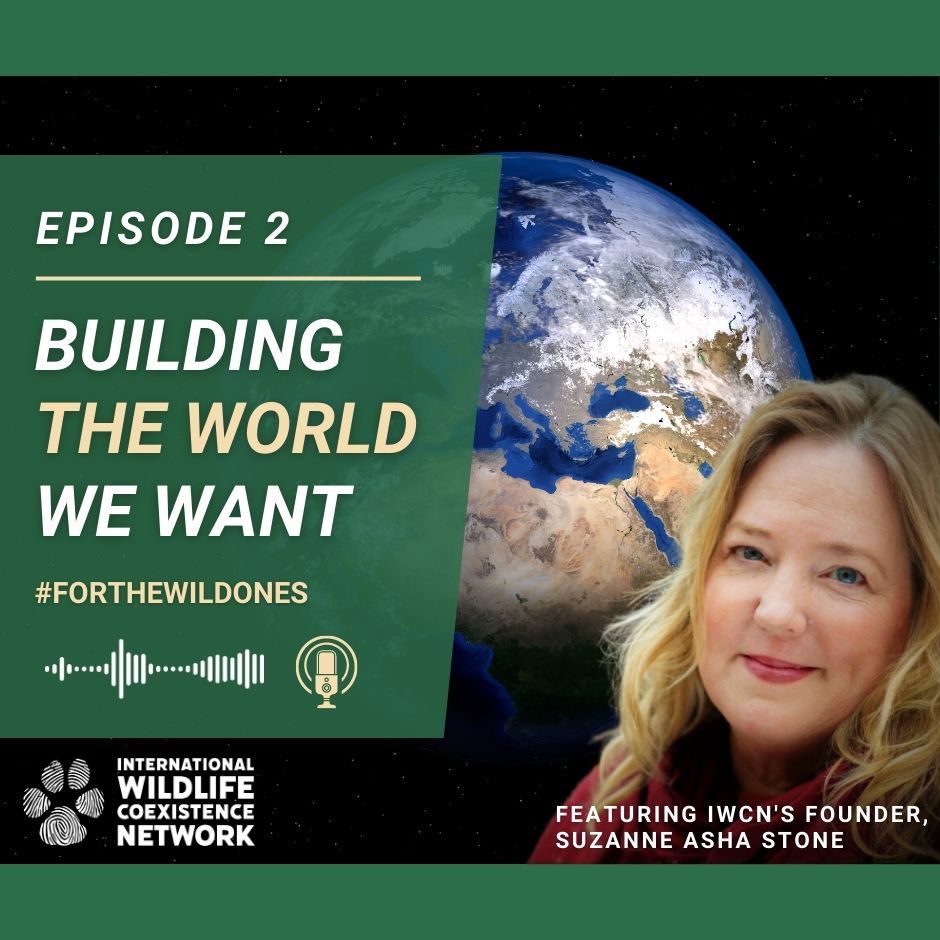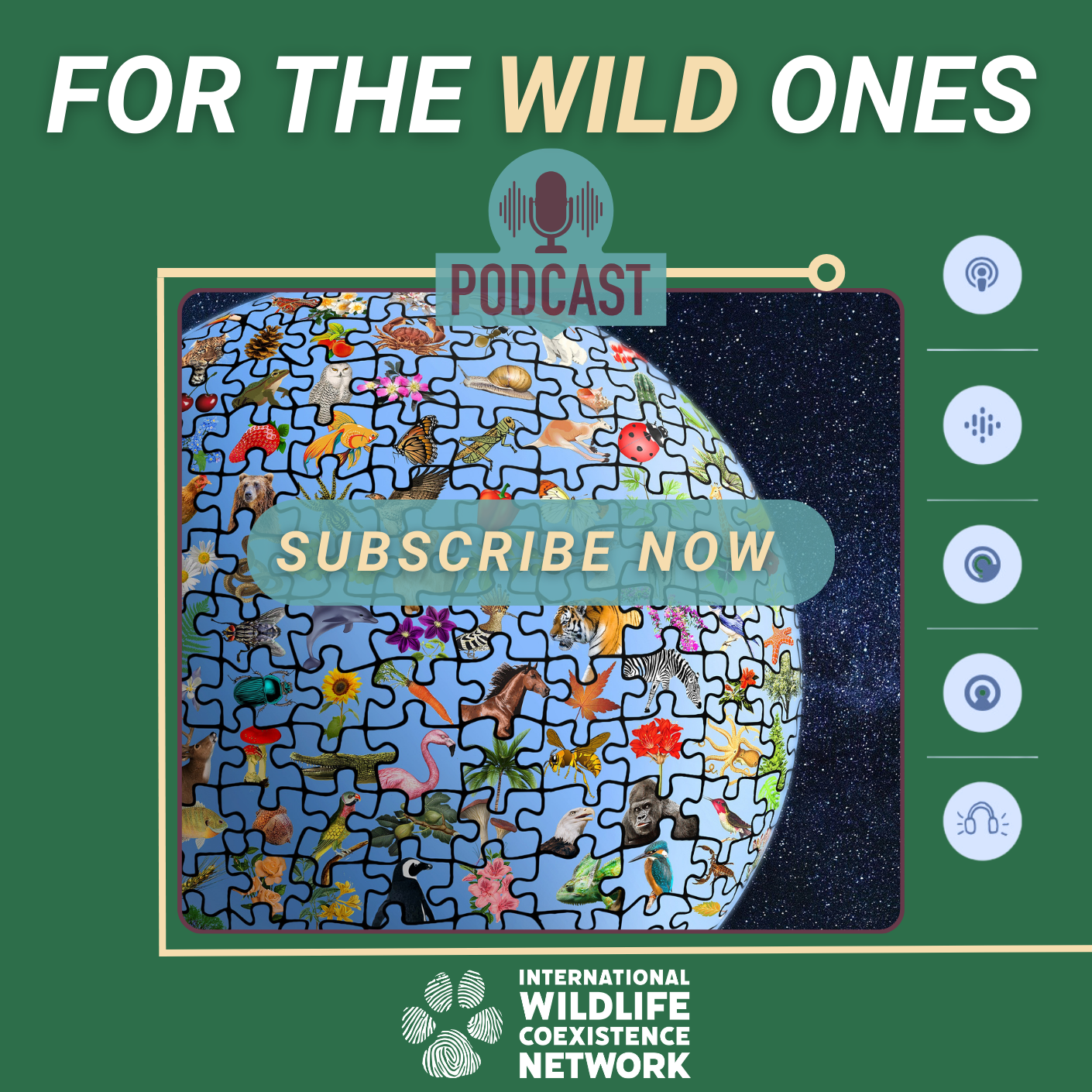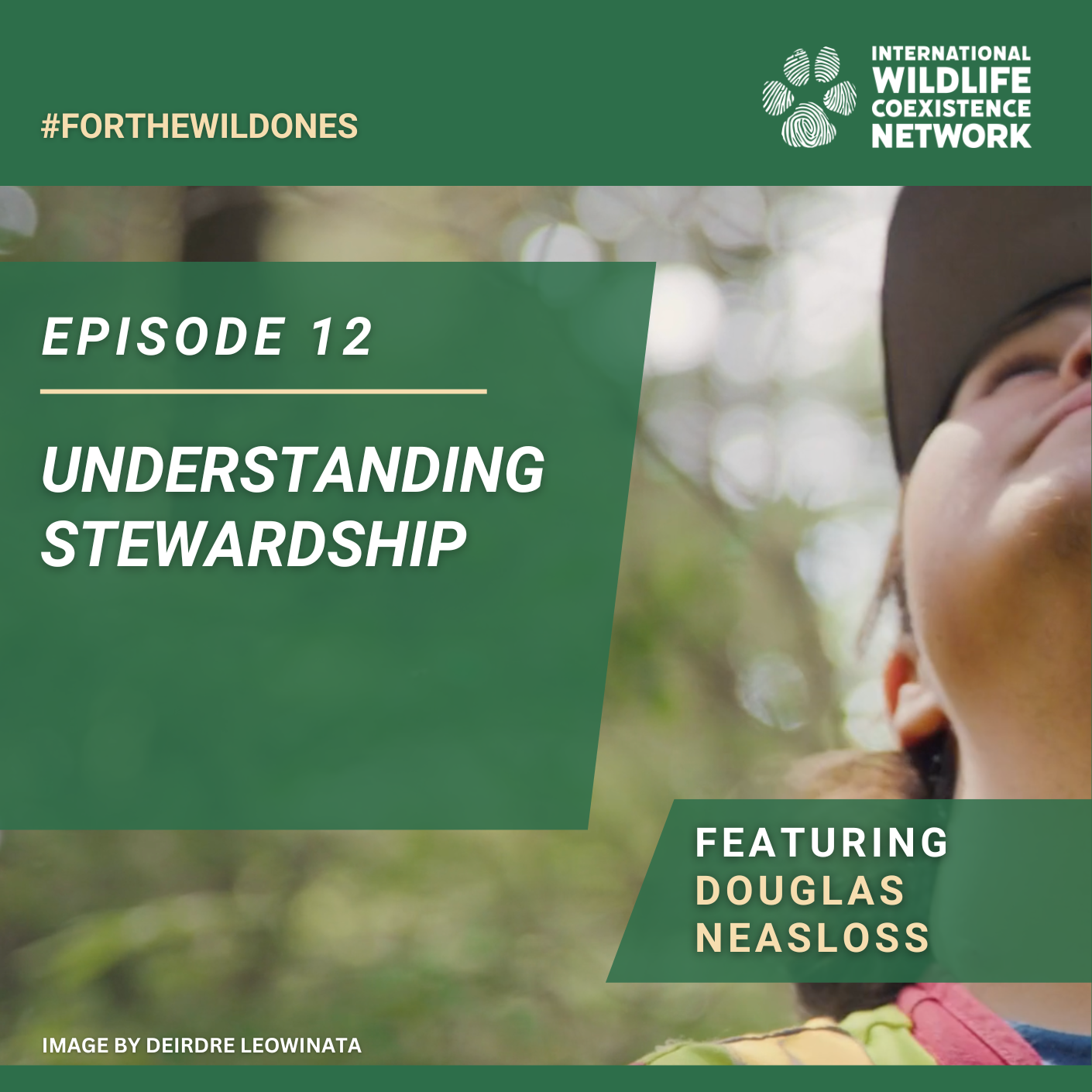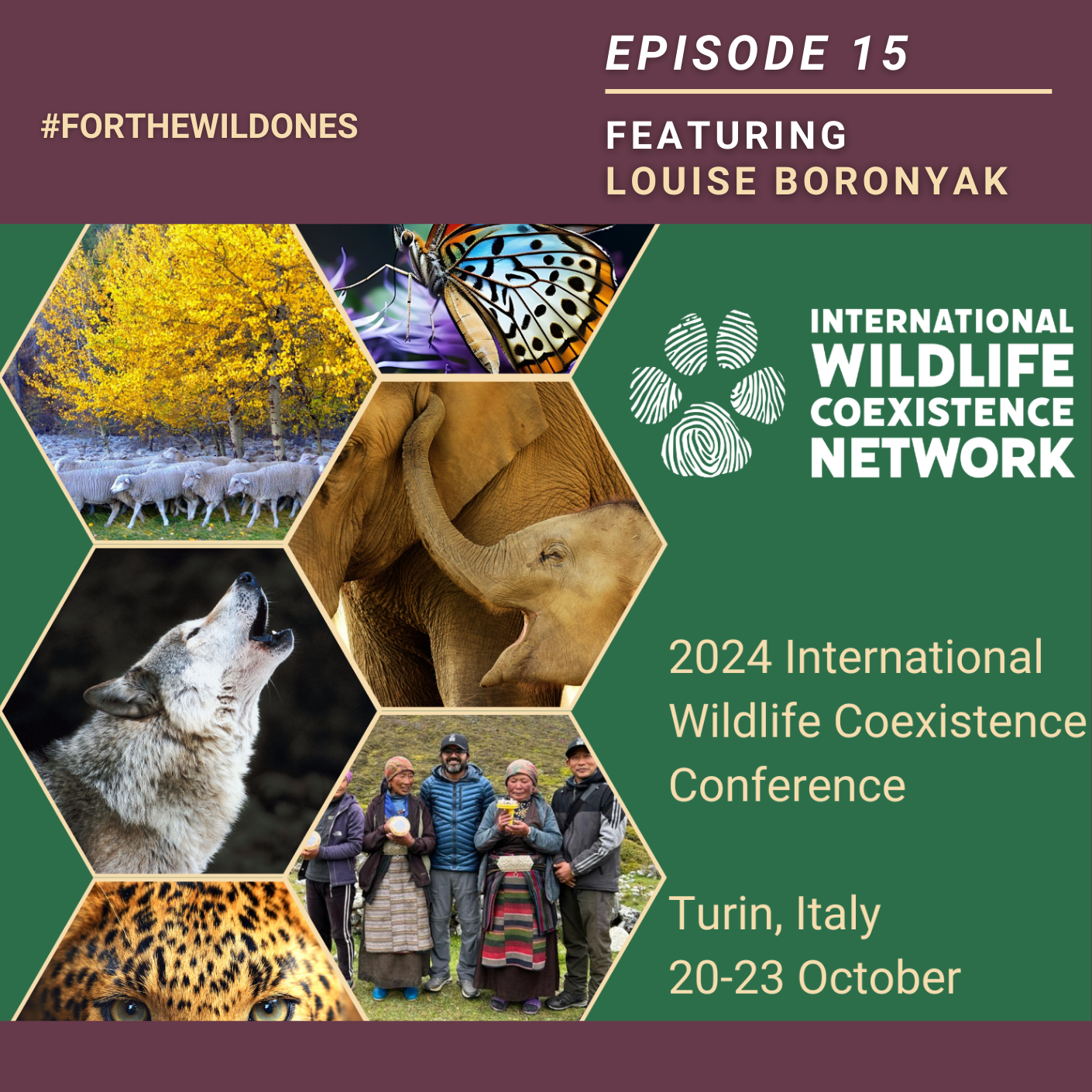Episode Transcript
Host 00:00:06 Welcome back to For the Wild Ones. This is part two of our conversation with International Wildlife Coexistence Network founder Suzanne Asia Stone. Before founding, I W C N, Suzanne has led an illustrious career in wildlife advocacy, beginning with the reintroduction of wolves to the Northern Rockies in the mid nineties, and then working to protect reintroduce pacs for decades. She's seen a lot of successes as well as a lot of struggles. In part two, we'll focus on how to overcome the obstacles that are keeping us from creating the world we wanna live in.
Host 00:00:45 In listening to you speak about the current moment that we're in, which is one of, of great potential because as you say, we can do it, we can save nature for future generations, for nature's sake itself, so that all life can enjoy a thriving, healthy planet. It sounds like a lot of this is about humans learning to practice kindness.
Guest 00:01:10 Yes.
Host 00:01:10 And share these kinds of very basic, yet incredibly complicated in practice values, kindness and sharing. Seems like we would live in a, a vastly different world in, in reality, not in some kind of concept of our lives or world, but that we would really be living together.
Guest 00:01:38 Yes. Um, it is, it's kindness, it's awareness. I think sometimes people who haven't had a relationship with say, an animal or seeing the magic of what occurs with nature, it's hard for them to feel that connection. So I think it, for those of us who have that connection, it's incredibly important now for us to share our stories, for us to take people by the hand and take them out and have them hug a tree that works for me. <laugh>, you know? Yeah. We've, we've often been teased about being tree huggers. It's like, why not hug a tree? <laugh>.
Host 00:02:19 I can tell you yesterday I took a little time with my daughter to just let her run her hand over a tree trunk. It's probably not her first tree that she's, she's felt, but it was a different one for me, that's a part of how we can deepen our relationship with nature is that it's so nuanced.
Guest 00:02:46 There's a bit of calling <laugh>. Sorry. Exactly.
Host 00:02:51 There, there's no end to the amount of detail once we start connecting, finding our way to, to connect <laugh>.
Guest 00:03:03 That's hilarious. And he'll do it a third time too. He's very predictable.
Host 00:03:07 <laugh>.
Guest 00:03:08 Yeah. He loves getting on Zoom calls and stuff too, so he's pretty funny. Bird, what you were saying about your daughter exploring the, the tree trunk, tell me about that again. What was that day like and what was that like for you as a, a father?
Host 00:03:24 So, she's almost a year old now, but when she was only a couple months old and I realized her awareness for objects was beginning to take hold. She was beginning to understand that there were different objects around her. I immediately began to just kind of carry her around and encourage her to touch a plant or a window pane or anything really to un to, to explore. And I can tell you that at this point months later, she is so exploratory. She is so curious. She wants to experience and connect with anything new. When we take her anywhere, she, she wants not only just to look, but to feel, to, to get closer, to try and understand in a, in a visceral way, rather than an intellectual one. And that experience as a father is just kinda mind blowing for me in terms of her, her ability to, the ability to shape someone's sensibility, right. Or hunger to connect with the world around her. Yes. <laugh>, that it's malleable, that it, that it, it can be sparked in, in that way. I didn't expect it at all.
Guest 00:04:53 Our relationship nature, just, it's the first breath of air <laugh>, um, that we pull into our body. It is, every food that we bring in is all part of nature. So we have that experience with nature at a very young age. And I think as we teach our youth how, um, like we live, as you can hear, we live on a little farm <laugh>. And so my children have been raised with plants that we eat from our own garden and animals that we have here. A lot of 'em are just what we call 'em, the freeloaders. And they're rescues and we love them, but it's being able to see the world through the eyes of another, another animal, another species, another exploring just butterflies, bees. And my daughter now is an entomologist and she is helping teach another generation about their relationship with everything from soil and more.
Guest 00:05:55 The botanical science approach is just incredible, the things that are unfolding. Um, but just because we live on a farm doesn't mean that we have to use toxins and pesticides and all of that kind of thing. In fact, it's the opposite. If we want a really productive garden, we don't use any of those things because we know that, like for example, that was a big craze for a while to try to poison trees using a chemical that would reduce the number of aphids that were attracted to trees and stuff. And what we learned is that it didn't just kill the aphids. It, it also killed all of the beetles and all of the honeybees and all the native bees. And that it would take years for those trees to recover so that they will never have the same type of, you know, safe habitat for the beneficial, uh, species that we share the land with, just because we wanted to get rid of aphids.
Guest 00:06:46 And it's like aphids really aren't that big a deal, aphis or the nature's way of telling you that a plant is in distress and that maybe we need to look at other things. Like what are you doing in terms of, um, the type of, uh, fertilizer you're putting on your grass? Is that impacting the tree? And maybe consider doing something different. We moved from grass to clover, and I love clover <laugh>. It's one of the best things we've ever done. You don't really have to mow it. The, the bees absolutely love it. It looks great. It's so much easier to care for. So that when I go to the, to our little farm store and they tell me, you know, they ask me a question like, they always ask, are you on our lawn care program? I'm like, no, I have clover in. They're like, oh, you lucky person. You're not spending, you know, a thousand dollars a year trying to keep a, a lawn going. Nope, we're not. Um, because there are so many different choices that we can make, and it's just about learning what those choices are and, and then applying them.
Host 00:07:48 I'm smiling big because I also planted our lawn with clover when, when we moved in a few years ago as, and have also just loved it. Have loved it, because I don't even have a, uh, I, I just have a, a mechanical push mower and it's quiet. So I, I love to just quietly cut the lawn
Guest 00:08:11 <laugh>
Host 00:08:13 Down, no motor. It's, it's true. It allows for a lot more, uh, plant biodiversity, I find too, to work with the clover. There's, there's something I wanna address in our conversation in terms of language that I'm sure many people as well as corporations might find terrifying in terms of managing people. People need to be managed this sense that because we're in a mess, their rights or liberties have to be sacrificed. That may be in big, far away centralized decision making rooms. Their lives are not being considered or that they're not going to be allowed to make decisions on their own land. That they're going to be tamed, that people are being tamed and, and can't be wild and their own. Right. Hmm. What do we say?
Guest 00:09:14 I, I think we're there that for decades now, society, especially in the Western United States, where I live, has become completely controlled. We are controlled by the food that we get to buy and what's available to us. Um, we are controlled by the small groups of people being able to dictate what happens to our public lands, even when we strongly disagree with how those lands are being harmed. So I, I don't know what freedom we would give up. I think if anything, we have a lot to learn from countries where there's no longer a 40 hour work week where people have time that are given to them during the course of the day to, um, go outside, do something for themselves out away from offices and production areas and just commercialism. It's encouraged for people to spend time outdoors. I mean, to me that's far more freedom than what we've seen that we've been living with for, for decades now.
Guest 00:10:20 But we're even seeing our government here in Idaho, getting involved in what kind of books we can read, what kind of healthcare we have access to. I think we are living in one of the most controlled times where we're, our freedom has been so heavily impacted. Our own revolution could be that we just decided we're going to turn to living a greener way. It's much harder for governments to control you when you're not addicted to their system. So anything that we can get off and get away from in terms of being dependent on systems that want to control us, I think, uh, our ways of reconnecting with nature, it makes the most sense because that is one of the most freest systems that we can be involved in on a daily basis that they cannot control
Host 00:11:15 In terms of coexistence as a direction, as a vision of a better world. Why is coexistence more than just a kind of state of tolerance? Why is it something to aspire towards?
Guest 00:11:31 Coexistence is, it's far more than tolerance. So it is about not only tolerating, of course, the wildlife, but understanding it, understanding your relationship with wildlife, what role you play and what you do on a daily basis, how it affects others around you. And it's actually really fun because the more that you become aware of the world around you, the, the greater the world becomes. It is like it suddenly opens up. My husband's funny. He always, every time he takes on a different project, whether it's building a bench or installing a window or just I, or you know, going down a, a certain river on a raft and learning where the lines are on the river of where you need to be in the raft, you're suddenly, you, you're developing an understanding and awareness that enriches your world. And it's, it's wonderful. It's like you suddenly become more and more content, more and more full, more and more aware and happier, um, because you're, you know, you're engaging in a relationship that does it. It it's just part of the mental health of what we need. That basic connection with understanding the world around us and being participants and, and in a way that puts us as stewards of the world around us, rather than just allowing or the world to go by without ever really engaging
Host 00:12:55 Just that consumptive mindset. Yeah. I, I love that vision of coexistence as breaking out of the box, peering out to discover the world's vastness and mysteries,
Guest 00:13:08 Claiming our right to have that relationship with nature and taking it for ourselves to have that. And there's so many people that are ready to help others who maybe they don't know where to start. That's okay. We can help. There's so many people around the world that can help. And it's available through stories, it's through video, through wonderful books. There's just all kinds of ways that people can start that engagement or enhance their own engagement, cuz it's really hard not to engage with nature at some level. And so finding ways that can help you expand that, we'd be delighted to help. And we love seeing people transform from having kind of a limited experience and limited scope to having full confidence of their relationship with nature and teaching us how to do it better.
Host 00:13:57 Maybe you can point to some of the community members on our coexistence council or other projects that I W C N works with because it's such an exciting community.
Guest 00:14:09 It is. It's on a daily basis. I can be talking to folks in Nepal and Australia and then the next day be working with people who are in Germany and then Israel and it, it just, I'm so inspired by the people around us that we get to work with. We have such a, an honor to be working with, with these people that are their own stories are so powerful. And one of the early partners for I W C N are two women who really helped give me the confidence to work on creating I W C N. They run a program called the Lion Guardians Program. You can find them on their website. Of course, if you go on our website, you can see their project as well, because we spend a lot of time trying to promote the great work of other people. And so Dr.
Guest 00:14:58 Stephanie Doren is the co-founder of Lion Guardians, and then her partner, Dr. Lela Za, they started working about the same time we did on the Wood River Wolf Project, so 16, 17 years ago. And they are working with the Maasai as part of their efforts to help restore lion populations. They're also members of Women for the Environment in Africa. They do a lot of work on just collaboration and helping share their innovations working with community. And, and they've been working closely with the Messai who, part of the reason the Lion populations weren't doing this well is because the messai traditionally, one of the rituals or the rite of passage for young men was to kill a lion. I think Stephanie and and Lela have helped work with that community, with some of the elders in the community. And instead of killing the lions, actually protecting the lions and, uh, protecting the livestock from being hunted by lions, it's been such an incredibly positive and effective program that it's one that we point to by really looking at how do you work with a local community and respect that community and their needs, especially at the cultural level as well as the economic level.
Guest 00:16:12 Because it is, it is such a important part of their existence, their ability to survive and then find a way through collaboration and, you know, technology and traditional knowledge to change conflicts into coexistence. And they're just two of those shining stars, but the sky is full of them. And we meet new people every day who are doing these things, working in tremendous ways to help heal our relationship with nature. We just need to find a way to, to support them, empower them to ensure that they're successful and to build on their success.
Host 00:16:50 In that vein, what is it that people listening can do to join our efforts or support them? How can young people get involved? What could artists do to
Guest 00:17:01 Help? We're starting an artist council, so we're really excited about that part because, you know, we've been focused on science, we've been focused on technology and government and all kinds of other traditional focuses. And it's wonderful to be able to bring together people who can visualize the world and visualize stories in so many different ways. We get so many people approaching us with different ways that they can help, want to help. So becoming a supporter, we, we share the love and we are here to help support the overall movement, the, the change in the, in the systems around the world. So we're working with everyone from local school groups to the Un Biodiversity Council, and that takes support. So anyone that can help us with a, a donation regardless of the size, you know, it's, it's about all of us digging in. Uh, we also have the ability to volunteer as an expert, which is on our, our website as well. And we welcome new volunteers. We want people to tell us us about themselves and information. And then we also offer a lot of things on our website that are things like the Coexistence Library. So if you wanna just learn more about local opportunities or research in your area or what's happening around the world, explore the library and it's there for free as a service that we provide. There's so many different ways that you can personally make a difference. It's just a matter of what you choose that difference to be.
Host 00:18:29 Do you feel like coexistence is more of a social movement or a science movement?
Guest 00:18:35 Yes. <laugh>? Yes.
Host 00:18:39 Perfect answer.
Guest 00:18:40 <laugh> social and science. Yes. And things that we haven't even imagined yet. You look at this world around us and it is incredible. The beauty of the biodiversity that we share the planet with these incredible species that are just awesome in their superpowers. And we have so much richness when we find a way to coexist in a manner that is sustainable over the long term, to support nature in the ways that we can and best help. Not only nature, but we are part of nature. Help us that we are building the world we want. And it can be as beautiful as we want it to be. It will be as beautiful as we want it to be. It is really truly up to every single person.
Host 00:19:31 Do people have to lose out in order to save wildlife and nature?
Guest 00:19:35 They only lose out when they don't Truly, when we lose, every piece that we lose makes our whole system less resilient, fragmented, unable to sustain itself. And when it falls apart, I mean, they're talking about right now looking at areas around the world where rivers are going to be drying up and millions of people who are going to be impacted by the loss of having access to clean water. We lose collectively, we lose as a planet, we lose as individuals because we could have made a better choice and we can, I think being intimidated by the powers that be is an illusion for a large part of it. That we can actually make these choices on an individual level of where we spend our money as consumers, where we focus our time as individual people and how we live our lives. We've got to take that back. It is too easy to fall into the apathy of just existing rather than really, truly living and coexisting with Nature is all a part of truly living. It's up to us.
Host 00:21:05 We hope you've enjoyed this discussion. I'm your host, Josh Adler. Thanks for listening to For the Wild Ones, brought to you by the International Wildlife Coexistence Network. Coming up, we'll speak with Field ecologist Delia Malone about Colorado's plan. For Wolf Re introduction and how you can help make it better, please find us on your favorite social media channel or go to our website, wildlife coexistence.org so you can keep up with our events, webinars, and community and be part of the solution.
